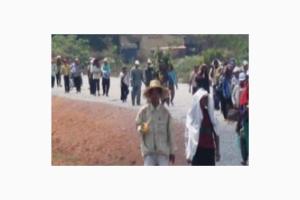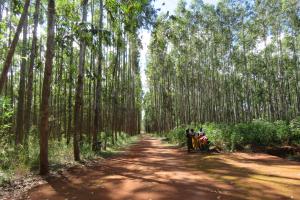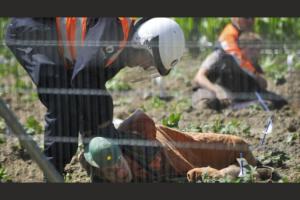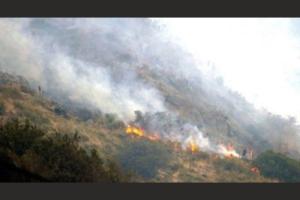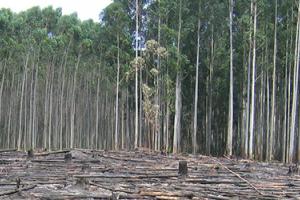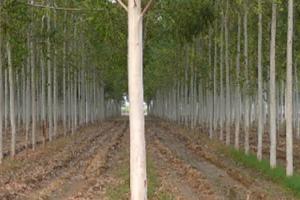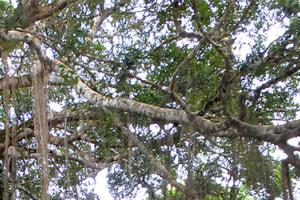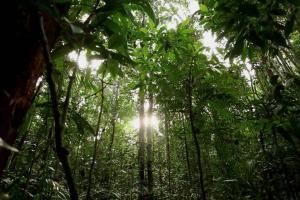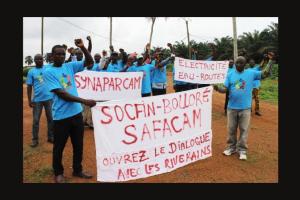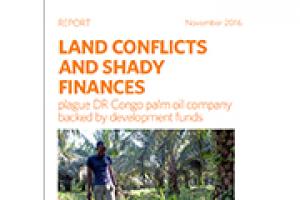Large-Scale Tree Plantations
Industrial tree plantations are large-scale, intensively managed, even-aged monocultures, involving vast areas of fertile land under the control of plantation companies. Management of plantations involves the use of huge amounts of water as well as agrochemicals—which harm humans, and plants and animals in the plantations and surrounding areas.
Bulletin articles
8 February 2017
Other information
8 February 2017
At the end of the climate summit in Marrakesh in December 2016, 20 activists from the Field Liberation Movement in Belgium planted a “permit to cut” in a field of GMO poplar trees belonging to the Flemish Institute of Biotechnology. The permit was given symbolically to the Flemish Minister responsible for climate policy. The Minister became infamous for her statement regarding forest management that “Trees have always had the function to be cut.” With this in mind, activists encouraged her to cut the field of GMO trees.
Other information
8 February 2017
In the Brazilian state of Espirito Santo, the Landless Peasant Movement MST is occupying some 400 hectares of land appropriated by pulp and paper company Fibria (formerly Aracruz Celulose). 190 families have already established a camp and are preparing the land for the cultivation of food free of pesticides.
Other information
8 February 2017
Organizations in Chile demand an end to the national policy and instruments that have been created to favor the development of tree plantations. The large-scale pine and eucalyptus monoculture forestry model has caused, in addition to other impacts, the fire crisis that is being experienced in the south-central area of the country.
For more information see: http://olca.cl/articulo/nota.php?id=106668
Bulletin articles
7 February 2017
Bulletin articles
7 February 2017
Years before governments adopted the Paris Agreement, international initiatives promising millions of hectares of reforestation and forest restoration were launched, supposedly to benefit the environment and local communities. Yet, not one example of reforestation at scale exists that has achieved the promised benefits for communities and the environment.
Bulletin articles
7 February 2017
In December 2015, the Paris Agreement was celebrated with great fanfare. This agreement, part of the United Nations Framework Convention on Climate Change (UNFCCC), establishes new measures to reduce Greenhouse Gas Emissions, which are responsible for global warming.
Other information
8 December 2016
The short video shows how the large-scale oil palm plantation project has negatively impacted the lives of thousands of community members, threatened biodiversity hotspots, and failed to meet development promises to local communities in the Southwest region of Cameroon. The film was released in anticipation of a crucial decision to be made by the Government of Cameroon on the renewal of a land lease for the controversial Herakles Farms (SGSOC) project. “The Wrong Project in the Wrong Place” is available here:
Other information
8 December 2016
Other information
8 December 2016
Other information
3 November 2016
2 November 2016.
European and US development funds are bankrolling palm oil company Feronia Inc despite land and labour conflicts at its plantations in the Democratic Republic of the Congo (DRC). New information now raises questions as to whether the Canadian-based company misused millions of taxpayer dollars destined for international aid by way of companies connected to a high-level DRC politician.
